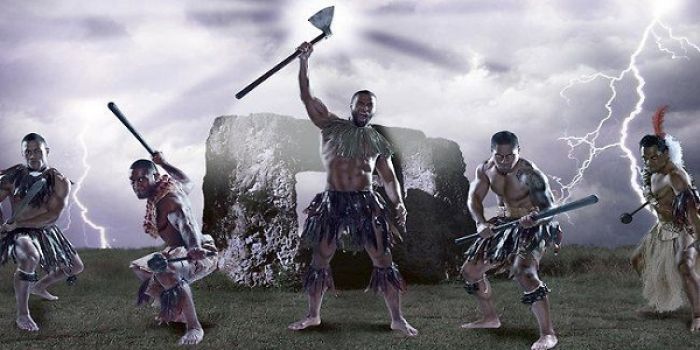Muni of the shredded eye-lid Featured

‘AATI & LITILESĀ/ART & LITERATURE
TA‘ANGA/MAAU & HIVA/POETRY & MUSIC
MUNI OF THE SHREDDED EYE-LID
Composed by Sitaleki Ve‘ehala
A performance art of poetry of praise, bravery and comedy (and tragedy)
Translated into English by the late Professors Futa Helu & Epeli Hau‘ofa
A Tongan poem “Muni Matamahae,” which is based on a Tongan fananga set in a mock-heroic, comic-tragic style in ancient Tonga
Listen, you man of verse,
To my ballad on Muni the Powerful,
A man of puny physique,
But of a mind that was wise,
In the traditions of Lo‘au, maybe.
Hail!
Motuku Ve‘evalu was reigning,
When Punga made war on him,
Driving him over to Ha‘atafu.
Hail!
Motuku fled to a cave,
But his lady went on,
And finding a boat set to sail,
She boarded to see the world.
Hail!
On the first night of sailing,
When passing through Faha-mo-Faha
A great disaster fell,
The order came to them,
“Get a windward bearing,”
They cut the woman open,
To find she was with child,
And Muni was thrown overboard.
Hail!
He was not taken by a shark,
He drifted to Lofanga,
Where a couple, gone to fish at night,
Found him stranded on a rock,
With an eye-lid pecked by the plover.
Hail!
They took him as their child,
And raised him huge and mighty,
But his bravery wa marred,
By an eye-lid that has been shredded.
Hail!
One evening came a man,
Enlisting labour for the boat-shed building,
Said he, “One side is yours,”
Muni woke up and laughed,
And told him thus,
“Don‘t wet your face with tears,
Leave the task to me alone,
Nothing will be hard.”
Hail!
Next morning he snapped the towering palms,
Uprooted the nearby koka tree,
And finished the task in a single day,
“Is his flowing sweat angry?” they wondered.
Hail!
Then came a message to him,
“Come, Muni, and guard the boat,”
Lest he became idle and thereby reckless,
For he was by nature ferocious.
Hail!
Muni woke and bitterly wept,
“This indeed, is a betrayal,
Meant to cause my death,”
The he went and ‘stood-while-talking,’
This is how the banana was named.
Hail!
“Old couple, come here,
Name a father for me,
So I can go looking for him.”
Hail!
“Come, Muni, head for Great Tonga,
Anchor at Telio and go ashore,
If a veka flies, watch him well,
That‘s the road to your home.”
Hail!
His single companion, a Fijian,
Jumped in to secure the anchor,
He tried to no avail and said,
“Alas, this spot is solid rock!”
Muni jumped in and drilled,
The hole that marks that beach.
Hail!
“Dear Motuku, wake up,
And gather our people,
If anyone’s away, wake him up,
I‘m off for a stroll on the Great Road,
Looking for someone to wrestle.”
Hail!
“Don‘t boast little lad,
For we are in hiding now,
If the ruler finds us we shall surely die.”
Hail!
Punga had gone east to build a canoe,
But was fishing at Hala Kakala,
His great kava tree was standing,
Covered by cackling bats.
Hail!
Muni uprooted the tree with one hand,
And delivered his message,
“When Punga the Great returns,
Let him come for a trial of strength,
‘Tis I, Muni the Unique.”
He went along tearing the plant in half,
Shaking the soil to left and right,
When the chase got up with him,
Muni tarried to wrestle,
He tossed him higher and higher,
Till down came the plea,
“You rule our country, Muni,
I‘ll just be punga on land and sea.”
Hail!
A BRIEF NOTE:
Following is an useful list of Tongan terms:
fananga – legend; type of formal language, of art
kava – type of tree / plant (basic ingredient for kava as ceremonial drink)
koka – type of tree (medium for house-building & bark-cloth-making material and fine arts)
punga – type of coral rock (soft texture compared to solid bedrock)
veka – bustard quail; type of bird (used as sign of good omen)
The heroic stories of Maui and Tahaki / Tawhaki are the regional Moana / Polynesian equivalents of the respective local Maama / Tongan heroic tales of Muni Matamahae and Sisi Mataela‘ā. There are two types of heroism in Moana / Polynesia and Maama / Tonga, both regionally and locally, namely, populist (non-conformist) and elitist (aristrocratic) heroism. Maui and Tahaki / Tawhaki, on the regional level, like Muni Matamahae and Sisi Mataela‘ā, on the local level, are considered as populist (non-conformist) and elitist (aristocratic) heroes respectively. In a way, these embodied competing physical, psycho-emotional and social ideologies represent the intersecting or connecting and separating tendencies in the constant transformation of society in time and space, where order and conflict are permanently mediated through sustained symmetry and harmony to produce beauty (that is, stability, sustainability and liberality).
With a strict sense of originality and creativity, these ancient Tongan stories were ingenuously created by the anonymous masters of old as comedies or tragedies or a mixture of both. As established Tongan performance arts, faiva fakaoli (comedy) and faiva fakamamahi (tragedy) are principally concerned with the mediation of the intersection or connection and separation of ngalipoto (normality) and ngalivale (absurdity), with kata (laughter) as an outcome, and of anga‘itangata (sociality) and anga‘imanu (animality), having fakamā (shame) as its effect, respectively. Such psycho-emotional, cognitive-moral outcomes or effects, however taken as either positive or negative by their very own nature, are a celebration and/or affirmation of the understanding that an error has been committed in human thinking. Evidently, these old tales have successfully found their way into the performance art of faiva ta‘anga / faiva maau (poetry) as a subject matter of investigation. The onus of creatively extending these complex and elaborate comedies and tragedies to other academic and artistic media, notably theatre and film, rests squarely on our shoulders, mainly our young, up and coming Tongan playwrights and film-makers.
‘Ofa lahi moe ‘amanaki,
Hufanga Dr ‘Ōkusitino Māhina
Professor of Art, Culture & Critical Anthropology &
Dean Inquiry & Research
Moana University of Technology (MUT)
‘Api Mataka – Haveluloto
Tongatapu – KINGDOM OF TONGA
1 comment
-

Si'oto'ofa & Dear Editor,
May I kindly ask that you please make the following correction to the title of the poem:
MUNI OF THE SHREDDED EYE-LID in place of MUNI OF THE SHREDED EYE-LID (as correctly shown in verse 6, line 4: By an eye-lid that has been shredded).
Malo fau & many thanks for the trouble.
'Ofa lahi moe hufaki,
Hufanga



